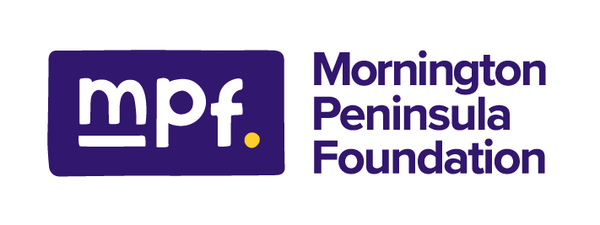Imagine starting secondary school not being able to read properly. Australian Education Research Organisation reports, “Nationally, up to 1 in 5 students starts secondary school 3 or more years behind their peers, having scored at or below minimum standards for reading.”
In 2023 when Rosebud Secondary College (RSC) on the Mornington Peninsula was faced with 60% of year 7 students being below reading level for their year, the school partnered with MPF and committed to tackling this significant issue that impacts students’ self-esteem, school attendance, and school completion.
With MPF support RSC appointed Wendy Coustley as their Literacy Leader. Wendy says, “Typically, literacy programs in high schools are small, often groups of six students receiving targeted intervention but you can’t hit the masses, and we really needed to hit the masses to have any impact.”
In 2024 Wendy and her team worked with 170 students from years 7 to 11. In 2025 out of 210 year 7 students, 60 are in need of high-level literacy intervention. This happens in RSC’s Corrective Reading program.
Corrective Reading is a scripted, explicit, direct instruction program that students attend four times per week. The lessons begin with sounds, then words, sentences, and then text and comprehension at the same time. It’s developed in this sequential way with one component or skill based upon another so ultimately students can read fluently and with a high degree of comprehension.
Students leave the Corrective Reading program when they hit benchmark for their year level. Literacy levels are assessed using DIBELS (Dynamic Indicators of Basic Early Literacy Skills) at the beginning, middle and end of the year. The assessment designed to be short (one minute) is used regularly throughout the year to detect risk and monitor literacy skill acquisition. Wendy says, “I really like that the program is data driven. Behaviour, well-being, or attendance aren’t the deciding factors, we care about those things obviously, but students go into Corrective Reading based on their reading data alone. We just want students reading.”
A strategic part of RSC’s approach is to provide literacy programs and resources at every level: Tiers 1, 2, and 3. Wendy explains, “Tier 1 students are at grade level, Tier 2 students need strategic support in the classroom and adjustments in curriculum for example, Tier 3 students need a much higher level of support and are possibly funded by NDIS. We made sure, rather than just targeting Tier 3 students as most intervention strategies do, we have included all students.”
Feedback from teachers and parents of students in Corrective Reading has been positive with improved attendance, behaviour, concentration and confidence being linked to students feeling successful in their learning as a result of the program.
A college wide benefit Wendy sees from the literacy program is it takes the burden off classroom teachers to work out how to address low literacy. “Secondary teachers haven’t been taught how to teach children to read. It is challenging when they have students in their class at grade 2 or 3 reading level. They do their absolute best to cater for where students are at but now, we step in and take care of the literacy part, getting them up to level so they can participate in class. That’s been really positive for the whole school.”
A key part of MPF’s community wide support and of Wendy’s role has been establishing partnerships with local feeder primary schools, getting to know their principals, education support staff, and grade 6 students preparing for secondary school. This supports their important transition to year 7. In 2024 Wendy was awarded the Victorian Education Excellence Award for being the Outstanding Secondary Teacher. The award recognises Wendy’s dedication to inclusive, system-wide literacy improvement.
The long-term goal is for Wendy’s role to be redundant. Feeder primary schools are implementing DIBELS assessment and explicit, direct instruction programs. This early intervention work means most students will start secondary school at reading levels closer to expected levels than in the past.
MPF has committed a further three years funding to consolidate this work and ensure all young people who have missed out on the essential foundational building blocks of reading are supported to be on track for learning in secondary school.
